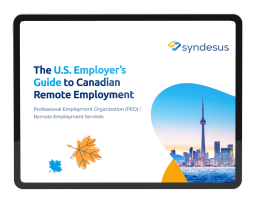If you’re an Indian national waiting for a US green card, don’t hold your breath — according to a 2020 report by the Cato Institute, more than 1 million other Indians are waiting in line for their green card.
And, at the rate the line is moving, it is estimated that thousands of these individuals will no longer be alive by the time they become eligible. Indeed, as of March 2021, the current estimated wait time for an Indian national to get permanent residency in the US is 195 years!
This outrageous backlog of immigrants is said to be the result of, in large part, outdated green card limits.
Specifically, there are 140,000 employment-based Green Cards available each year, but because current US immigration policy caps each country at 7%, and because there are so many Indian nationals applying for employment-based Green Cards, a mind-boggling line has formed.
In a way, the US immigration system has failed high-skilled talent coming from India, especially those who went to graduate school in the US, pay US taxes, own property, and otherwise contribute to the US economy.
So let’s take a look at some of the proposed changes to US immigration aimed at fixing this issue, why there’s so much talk about Canada, and why Canada may be the best option for Indian nationals who want their permanent residency in North America.
Skilled workers are stuck in the US immigration process, but Canada offers faster, easier pathways
If you are impatiently waiting for a green card and have started to look north, you’re not alone. So many green card hopefuls have turned to Canada that Toronto is now known as ‘the Silicon Valley of the North.’
A recent congressional hearing titled, “Oh, Canada! How Outdated US Immigration Policies Push Top Talent to Other Countries,” warned about reverse brain drain which sees skilled workers leaving the US for our neighbor in the north.
California Rep. Zoe Lofgren, whose district includes Silicon Valley, told a story about her Stanford University classmate who spent years in the US as a temporary worker.
Rep. Lofgren’s classmate was educated in the US, worked in the US, paid $4 million in taxes in the US, and still, he never managed to get permanent residency. So, he eventually moved to Canada.
So for Indian nationals, especially those waiting for a green card, Canada is not only a better option, it’s a role model, in some ways, for an effective and smart immigration system.
The green card process isn’t the only immigration pathway struggling in the US. Unfortunately, each year, hundreds of thousands of workers seeking H1-B Visas are left empty-handed. And students in the US on F-1 Visas have experienced similar struggles on their paths to citizenship.
Canada, on the other hand, views immigration as essential for economic growth, which explains why they’ve developed several immigration pathways to ease the process of bringing skilled workers into the country.
So for Indian nationals, especially those waiting for a green card, Canada is not only a better option, it’s a role model, in some ways, for an effective and smart immigration system.
Three Canadian visa alternatives that skilled Indian nationals can consider
Canada has an ambitious three-year immigration plan with targets for bringing 1.2 million skilled workers, family members, and refugees into the country by 2023. Lucky for those who want to be among these million-plus new Canadians, Canada has plenty of great immigration pathways to choose from.
Global Talent Stream (GTS)
The most popular option is the Global Talent Stream (GTS), which was created to expedite and ease the processing time for visa and work permit applications for foreign nationals who possess unique talents or are highly skilled.
Typical GTS applications take a short 10 business days to assess applications and 14 business days to process work permits for qualified workers.
Many global high-skilled workers who were once interested in working in the US on an H-1B have turned to Canada because of the long processing times and an increasing rate of H-1B rejections.
GTS empowers Canadian companies to quickly hire highly-skilled foreign talent and lets employers skip the Labor Market Impact Assessment process, which requires a Canadian labor market test to make sure there are no eligible Canadians who can take the job because the skills they seek are in such high demand that the government gives blanket approval to hire for them.
Provincial Nominee Program (PNP)
A pathway similar to GTS that’s regional rather than federal is the Provincial Nominee Program (PNP).
Since its introduction in the 1990s, PNPs have become the second most popular pathway to obtain permanent residence for skilled foreign workers and aims to admit over 60,000 people annually.
PNPs give some of Canada’s provinces and territories the power to control their own immigration programs as a way to attract workers with specific skills needed for that region.
Today, eleven Canadian provinces and territories can customize and accelerate their own immigration processing to fill gaps in their regional labor market. The business immigration PNP enables you to start, invest in, or buy a business in the province.
The Start-up Visa Program
One of the best routes into Canada for entrepreneurs is the Start-up Visa program which began as a five-year pilot program in 2013.
Ironically, Canada’s visa program for start-up companies is modelled on part of a decade-old US bill that stalled in Congress but that was, after the Congressional hearing mentioned above, was reintroduced as a new bill.
Canada’s Start-Up Visa is designed to make the immigration process fast and easy for international entrepreneurs who can secure funding with investors.
This visa program connects innovative entrepreneurs with private sector investors to establish start-up businesses that will create jobs for Canadians and can compete on a global scale.
To qualify for this visa program, you must have a start-up, an intermediate knowledge of English or French, and a Letter of Support from a designated organization.
The Start-up Visa is perfect for entrepreneurs seeking funding, but if you own a business and are interested in expanding into Canada, you’re not alone.
Many American businesses — large and small — have opened offices or moved their entire operations north of the border.
In search of talent, American companies are expanding into Canada
Canada is the perfect alternative for folks who weren’t selected for an H-1B or immigrants who have been left waiting for a green card, but it’s also a hot destination for American businesses.
Canada’s ever-growing pool of skilled labor is a huge attraction for international companies considering expansion into Canada. It also helps to have an immigration pathway like the intra-company transfer program.
Canada’s booming tech scene is the perfect alternative for companies left behind by the American immigration system when it comes to hiring skilled tech talent to help them grow.
The Intra-Company Transfer Program
The intra-company transfer program allows key employees of a company that is looking to open up a new office in Canada, to be able to move to and work in Canada.
Bringing international employees to Canada as intra-company transferees allows employers to skip getting a Labour Market Impact Assessment as well.
This easy access to foreign workers is very tempting, and plenty of American tech companies have caved to Canadian temptation and have moved into Canada to open up or greatly expand their tech offices.
Tech giants like Google, Microsoft, Intel, and Uber have gone north of the border, and more companies are following suit. Twitter — a micro-blogging and social media networking platform — has announced plans for its new engineering hub in Toronto.
Reddit is also expanding to Canada and plans to use its Toronto team to work with Canadian brands and establish community engagement. Cloudflare has opened a Toronto office, which will be its 16th globally but it is first in Canada.
Canada’s booming tech scene is the perfect alternative for companies left behind by the American immigration system when it comes to hiring skilled tech talent to help them grow.
Syndesus can help you live and work in Canada
America’s broken employment-based immigration system will leave many recent immigrants facing lifetime waits for green cards.
Ideally, Congress needs to address this emergency before it loses hundreds of thousands of skilled workers, but while the US works on it — which hopefully they will — Canada is still the best option.
Are you interested in moving to Canada? You have options!
The Global Talent Stream, Provincial Nominee Programs, and the Start-up Visa Program are all great options, and if you have a job with an American employer that you’d like to keep, a PEO can help you keep that job while moving to Canada and benefitting from Canada’s effective immigration system.
And for US employers, the Intra-Company Transfer program may be a great option for those US tech companies wanting to expand into Canada while bringing over their international employees.
A PEO, otherwise known as a professional employer organization, gives US-based companies the power to remotely hire someone who is living abroad.
A PEO like Syndesus helps US companies expand into Canada, handles the Canadian immigration process for the employees they want to bring up to Canada, and legally hires them in Canada so that the US company doesn’t have to go through the trouble of opening an office, establishing a legal presence, and so on.
The US company pays the employee’s salary (via Syndesus) and manages their day-to-day work — it will feel like a completely normal remote job.
Simply put, you keep your American job, but you’re able to immigrate to Canada. If working in Canada and becoming eligible for permanent residency in just one year sounds like a better life than waiting and waiting for US immigration to catch up, that’s because it is.
So, if you’re considering a move to Canada, Syndesus can walk you through the logistics of relocating.
Want to hear more? Book a consultation to discuss how we can help!





